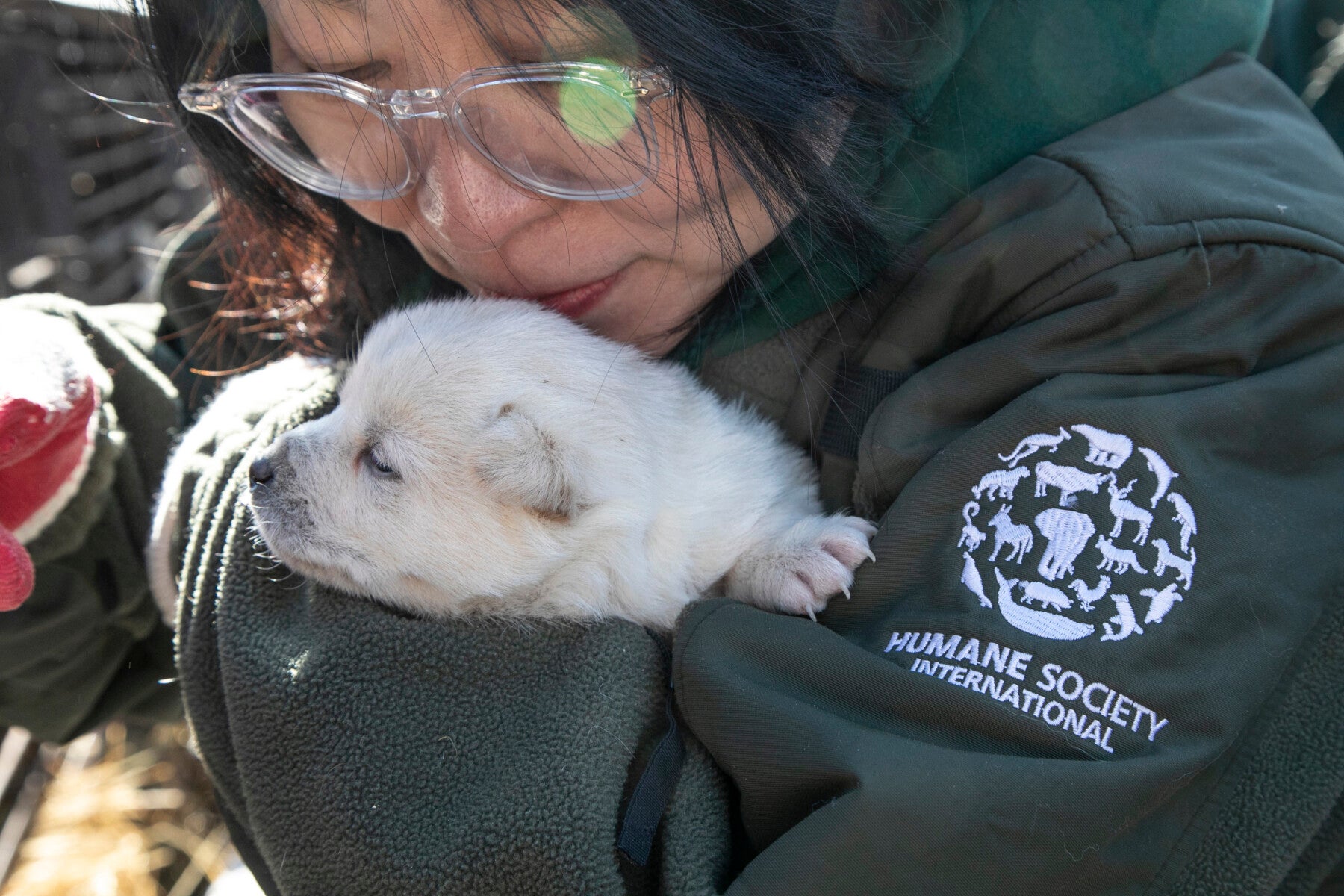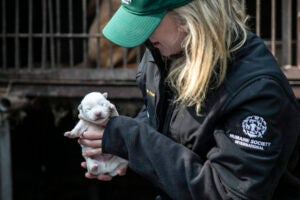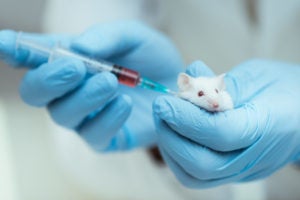
SEOUL—As South Korea’s government today published its much-anticipated Basic Plan for the phase out of the dog meat industry, animal campaigners at Humane Society International/Korea have welcomed it as an “important milestone in this historic plan” and called on other countries across Asia to follow suit. However, more action is needed to prevent unnecessary dog suffering, says HSI/Korea.
Sangkyung Lee, HSI/Korea’s end dog meat campaign manager, made the following statement:
“Publication of the government’s Basic Plan to phase out South Korea’s dog meat industry marks an important milestone in this historic ban that will see it through to completion and end our country’s dog meat era for good. We hope that other countries across Asia where the dog meat trade persists despite public opposition will follow South Korea’s lead so that our Special Act and Basic Plan can be the catalyst for similar compassionate action around the world. HSI/Korea stands ready to further advise the government on dog welfare, and to rescue dogs where we can so that innocent victims of this brutal dog meat industry have a chance of a happy life.”
Regarding the financial support plan for dog meat farmers, HSI/Korea’s Lee said: “We are disappointed that the government’s Basic Plan provides financial support for dog farms based on the number of dogs. While limits are set based on the reported capacity of waste disposal facilities, this approach risks potentially increasing dog breeding with the aim of getting more money from the scheme, with more puppies being born into suffering. This completely goes against the purpose of the special law, risks subjecting even more dogs to unnecessary suffering and could actually make the Ministry of Agriculture, Food and Rural Affairs’ job of dog farm population management even harder in the long-term. We urge MAFRA to rethink this idea and switch instead to a fixed financial amount or support package based on each farmer’s transition business plan.”
On the issue of managing the remaining dogs during and after the phase-out period, Lee added: “More urgent discussions are clearly needed about practical steps that must be prioritized to stop puppies being born on farms during the phase out period. The government must actively engage with local governments and animal protection groups like HSI/Korea, to ensure that farmers immediately separate male and female dogs on farms to stop breeding. There is no excuse for even more innocent puppies to be born into this cruel industry precisely at a time when the goal is to end it.”
Facts:
- With over 6 million pet dogs now living in Korean homes, demand for dog meat is at an all-time low. A 2023 Nielsen Korea opinion polls shows that 86% of South Koreans won’t eat dog meat in the future and 57% support a ban.
- Since 2015, HSI/Korea has helped 18 dog farmers across South Korea switch to growing crops such as chili plants and parsley, or water delivery and other livelihoods as part of its Models for Change program.
- South Korea joins a growing list of governments across Asia that have banned the dog meat trade (with varying degrees of enforcement) including Hong Kong, Taiwan, the Philippines, India, Thailand and Singapore, as well as the cities of Shenzhen and Zhuhai in mainland China, Siem Reap province in Cambodia, and more than 60 cities, regencies and provinces in Indonesia.
Click here to view video and photos of HSI/Korea’s dog meat farm closure program. Contact whiggins@hsi.org to download visuals.
ENDS
Media contact:
- Wendy Higgins: whiggins@hsi.org







